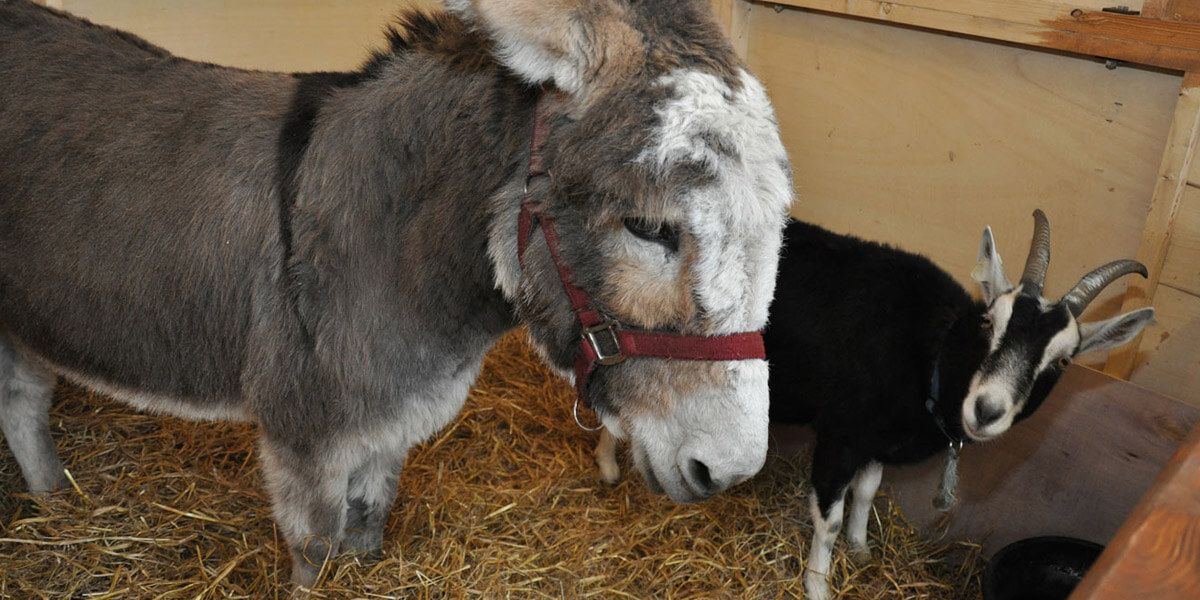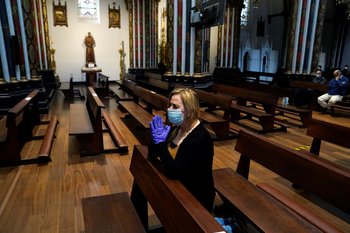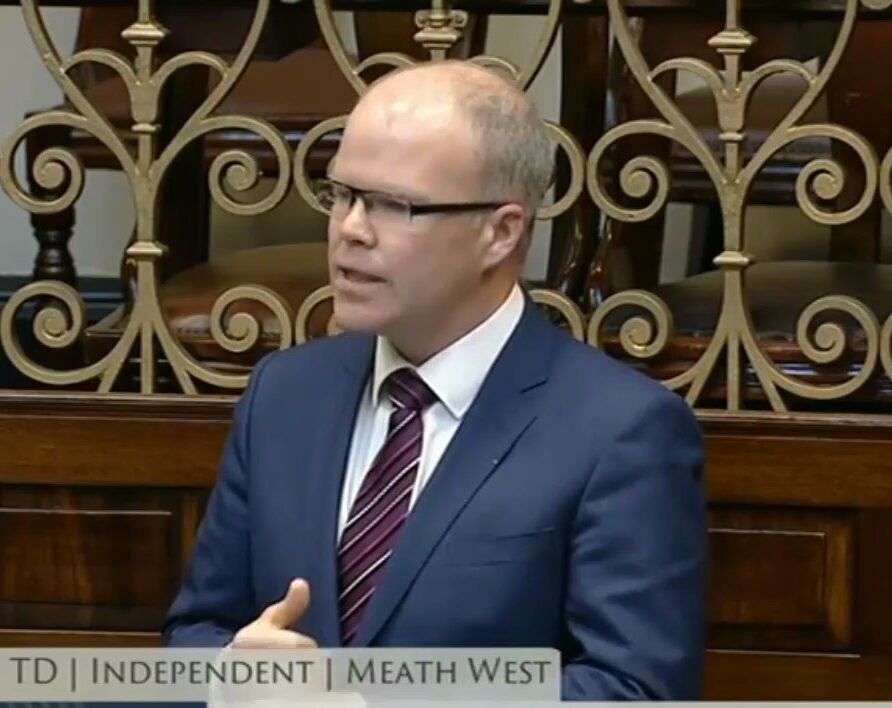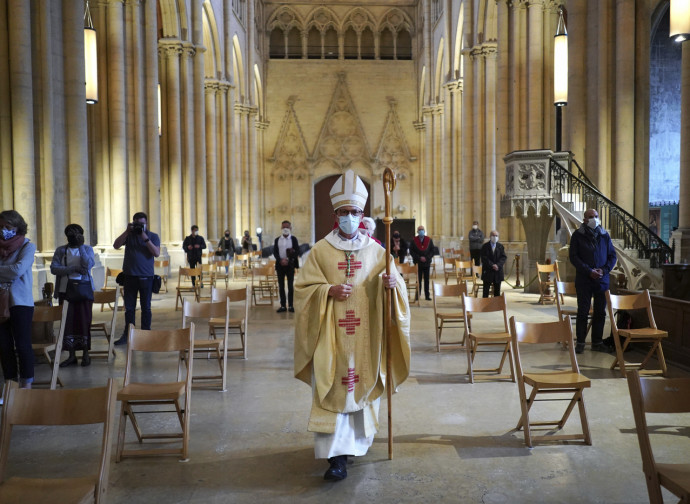
The IFA Live Animal Crib has been opened at the Mansion House in Dublin.
Due to pandemic restrictions people can view the animals only through enlarged windows at the front of the crib this year.
“I was determined the crib would be back,” said Lord Mayor Hazel Chu. “It is 25 years since it was first launched and in that time it has become a Dublin tradition.”
She also announced that on Christmas Day she and Knights of St Columbanus will serve dinners to the homeless at the Mansion House forecourt and garden as the RDS is not available due to Covid-19. Dinners will also be delivered to people around the city.
Meanwhile, on Tuesday of this week, a series of inter-faith gatherings to celebrate religious festivals missed during 2020 began at the Lord Mayor’s garden near the Mansion House
Rewind 2020, organised by the Dublin City Interfaith Forum, will continue until December 14th with each day dedicated to a different faith.
Beginning at 1pm each afternoon, faith communities taking part will include Buddhists, Sikhs, Jews, Hindus, Baha’i’s, Muslims, and Christians. Covid-19 guidelines are being strictly adhered to with attendance limited to 15.

Social media posts that promote prayer to combat Covid-19 should only be taken down if they “increase the risk” of catching the virus, Facebook has told its content moderators.
Internal training documents, reported by The Times, Ireland, state that posts about religious gatherings to cure the virus should be permitted once they take place online and not in person.
In a lengthy slide deck entitled Covid-19, misinformation and harm, moderators are given advice on what content should be taken down, and what can be left up on Facebook or Instagram.
The company sets out three tiers for its moderators to consider when reviewing content.
In the second tier it says that posts that make claims that partaking in a religious activity can cure Covid-19 if that activity calls for an action that “increases the risk of exposure of transmission of the virus” should be taken down.
However, it will not take down posts that call for prayers to help cure Covid-19 or a group zoom prayer meeting where similar statements are made.

The public worship of God must not be set aside by any earthly power, nor neglected by the true people of God, according to a Baptist pastor who opened his church for religious services despite Northern Ireland’s coronavirus restrictions.
Pastor David Patterson said church closures have been to the detriment of the faithful.
Writing in Belfast’s News Letter, he said Christians are to be law abiding citizens, but only in so far that laws are not contrary to the Word (or Law) of God.
“The Executive in directing the citizens of Northern Ireland not to meet for the public worship of God, acted beyond their God given mandate, because the Executive’s prohibition on the public worship of God is contrary to Scripture.”
He also rejected the argument proposed by many to close churches out of love of their neighbour.
The two great commandments, love of God and of neighbour, can never negate each other, he said.
“We must obey God and worship Him, and in doing so endeavour to love our neighbour.”

Same sex couples in Northern Ireland are able to convert their civil partnerships into marriage from Monday of this week.
More than 30 couples are expected to make the change initially.
Under legislation that came into effect on Monday more than 1,300 same sex couples will be able to convert their partnerships into marriage.
Such civil partnerships have been legal in Northern Ireland since 2005 but it was only earlier this year that same-sex marriages were permitted.
That same legislation allowed complementary-sex couples to also engage in civil partnerships.

The HSE’s Health Protection Surveillance Centre (HPSC) have released updated COVID-19 guidance for religious services, along with a new set of guidelines specifically for “the holiday season”.
It sets out how “overcrowding” at mass or other religious services could be prevented over the Christmas period.
Recommendations included running additional services, increased stewarding of parishioners, and for churches to set up an “advance booking system where necessary” for places at services. Parishes have been successfully abiding by public health guidelines since March.
Mass should not exceed one hour, including the time it takes people to enter and exit the church, the guidance stated. There should be at least one hour between services to allow time to clean surfaces, and ventilate the church.
Due to the increased risk of Covid-19 transmission from people singing in proximity to others, the guidance stated carol singing will not be permitted at religious services.

Ireland should take a lead role in raising the Chinese government’s campaign of “genocide” against the Uighur people when it takes its seat on the UN Security Council in January, the chairman of the executive committee of the Uighur World Congress has said.
Addressing a webinar organised by Senator Rónán Mullen, Omer Kanat called on Ireland to use its position on the Security Council to help his people, and referenced the Nazi extermination campaign against the Jews.
“The world said never again, but never again is happening now in China and no-one can claim they don’t know,” he said.
Mr Kanat said he “would like to ask Ireland to take the lead in organising support for a UN Security Council agenda item to propose a commission of inquiry.”
“Everyone should be shocked that such a resolution has not even been proposed so far.”
He added that Ireland should also support EU sanctions against Chinese officials and companies aiding surveillance and forced labour in Xinjiang, and ban government procurement from Chinese companies involved in the surveillance operation.

Several TDs demanded answers from the Government after a report indicated that babies who survive late-term abortions in Ireland are being left to die without receiving medical care.
They also pushed the Government to ensure that babies undergoing late-term abortions would be given pain relief.
Carol Nolan TD said his response was “disappointing” as “the Minister of State has not dealt with anything we raised here”.
Deputy Seán Canney said the Minister “dodged the questions”.
The leader of Aontu, Peadar Tóibín said the hundreds of words spoken by the Junior Minister “add up to nothing”.

Geneva’s total ban on religious services and events has been suspended by the Swiss Constitutional Chamber of the Canton of Geneva.
The court deferred a decision on whether the ban is a violation of the right to freedom of religion after a group of concerned citizens filed a legal challenge against it. While the suspension does not serve as a final ruling, it indicates that the ban is not proportionate and means that religious services and gatherings are now permitted until a final judgment is handed down. The Chamber indicated that the likelihood of the case ultimately succeeding is “high or very high.”
“This ban is a serious violation of the fundamental rights Switzerland is committed to protect in a number of international human rights agreements,” said Jennifer Lea, Legal Counsel for ADF International, a global human rights group with offices in Geneva that supported the case.
“Religious freedom is a fundamental human right and governments seeking to restrict it carry the burden of proving the restriction is truly necessary and that a less restrictive approach would not work. Favouring commercial establishments over religious services is not only discriminatory but ignores the robust protection that exists in national and international law for religious freedom

The Catholic Bishops have appealed to people to “keep Christ at the centre of Christmas this year”.
Nonetheless, in a message at the conclusion of their winter meeting on Wednesday night,
they described it as “impossible” for the usual large numbers to attend Christmas Masses later this month due to Covid-19 and have reminded people that such Masses would be “widely available over webcam”.
They “strongly encourage families to ‘tune in’ from the ‘domestic churches’ of their living rooms and join with those who are gathering in their local churches in welcoming the birth of the Christ-child”.
Christmas was “about more than just one day. Families are welcome to attend Mass at some point during the 12 days from Christmas Eve to Epiphany (January 6th),” they said.

The laws governing maintenance after divorce should drop a presumption of lifelong financial obligation, according to an expert in divorce and family law.
Geoffrey Shannon believes the issue of maintenance now requires a fundamental review, as it is still operating according to laws that date back to 20 years before the 1995 referendum.
“In the context of divorce, what you have is the marriage ceases, but your obligations continue indefinitely,” he says. “No single concept alone can govern the system of maintenance, yet we have a system where the focus is on lifelong spousal maintenance.”
A couple might only be married for four or five years, and have no children, yet the Irish system presumes the possibility of one spouse having a lifelong financial obligation towards the other.
“Really what I am saying is that the payment of maintenance between former spouses should facilitate a smooth transition from dependence to economic independence, ensuring that the dependent spouse is provided for until he or she is self-sufficient.”
Maintenance should be calculated in a way that reflects the duration of the marriage, and the commitments that are required.